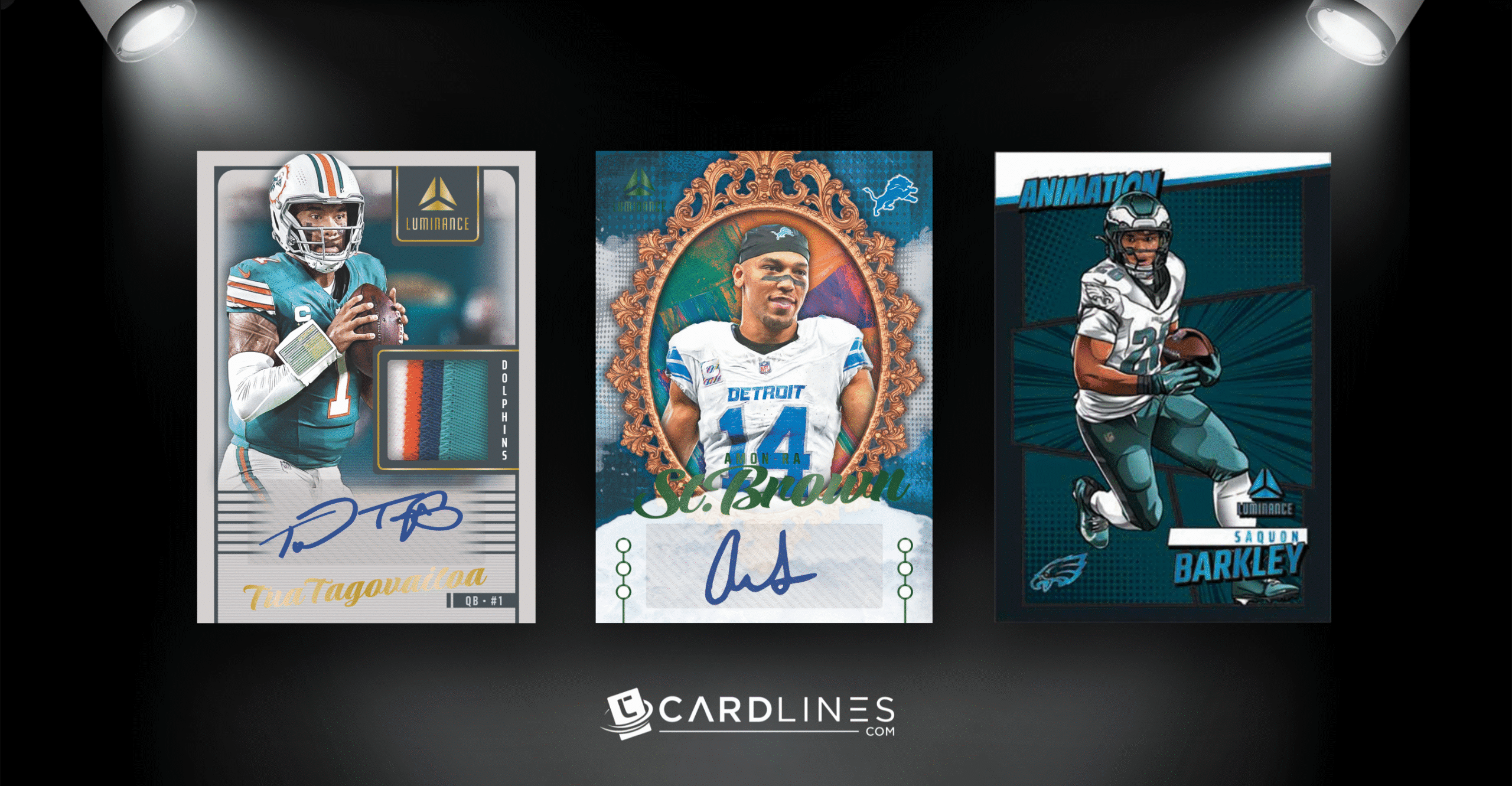

The appeal of collecting comic books spans several generations. Once relegated to the realms of childhood amusement, comic book transformation has defied expectations.
In its earliest days, comic books were aimed primarily at a youthful audience, featuring larger-than-life characters. Today, it’s a global powerhouse generating billions of revenues through publications and their adaptations onto the big screens.
In addition, comic books have become cherished collectibles with ample sentimental and financial value. No longer confined to children’s hands, these books have attracted the attention of many enthusiasts.
From collectors to artists and writers to investors, they all recognize the historical significance, cultural impact, and potential financial worth embedded within the pages of comic books.
This guide to collecting comic books shall cover everything you need to know to begin a comic book collection. Whether as a regular collector collecting your favorite titles or an investor building a collection solely based on its investment potential.
People collect comic books for several reasons. Let’s look at some of the reasons several enthusiasts embark on the hobby of comic book collecting.
The first category of comic collectors collect because they possess a deep appreciation for comic books’ artistry, storytelling, and creativity. They admire the attention to detail in both the artwork and the writing. Few can deny how comic books fuse visual and literary art to tell a story skillfully.
For these collectors, each comic book is a work of art that shows the creativity of its creators. They collect these comics to celebrate these illustrations, vibrant colors, and skillful storytelling. These collectors care less about monetary value and collect unique issues that exemplify the best of the medium.

Nostalgia is a powerful motivator that accounts for the collectability of almost all collectibles. The same holds true for comic books. Many collectors are drawn to the comics they enjoyed during their childhood.
The connection between comic books and personal history often runs deep. Collectors seek out such issues to recapture the feelings of wonder and excitement they experienced when they first read the stories.
Nostalgia helps reconnect collectors with their past and offers a comforting sense of continuity in an ever-changing world.
Nostalgia collectors often don’t care about making a profit but prioritize issues from specific eras, hoping to rekindle the emotions they felt as children.
While some people collect comic books for nostalgia or interest in the medium, others collect solely for profit. Comic book collecting began a remarkable transformation when Michael Cohen and Tom Horsky published the first comic book price guide in 1965.
Shortly after, comic book collecting went from being a niche hobby to a lucrative investment opportunity. The market has witnessed remarkable cases of certain comics selling for millions of dollars in recent years.
The potential of making substantial financial gain is higher than ever, and several collectors are turning towards the world of comic book investments.
As expected, collectors collecting for financial profits focus exclusively on potential gain. They track market trends, rarity, and demand, collecting only rare or first-editions to maximize their returns.

Your motivation for starting a comic book collection would significantly shape your approach and strategies. Your reason for collecting would become a compass that’ll guide your choices, acquisitions, and even how you preserve your comic book collection.
Starting a comic book collection can be daunting, but several tips can make building a collection much easier. These tips go beyond just sourcing and storing your comics.
It covers how to source comics, grade, and properly store your collection. It also helps new collectors avoid common mistakes people make when starting to build a comic book collection.
The first step in your comic book-collecting journey is to identify your focus. Comics have existed for centuries, and a vast world of comic books is available.
Your focus will guide your collecting decisions and determine your journey’s direction. Regarding focus, there are primarily two aspects to consider: the thematic content and the era they belong to.
Comic books cover a wide range of themes, genres, and characters. You can center your collection around superhero comics, which is the bedrock of the comic book industry. Iconic characters like Superman, Iron Man, Batman, and Spider-Man have intrigued readers for generations.
Alternatively, you can collect specific genres such as science fiction, fantasy, horror, crime, romance, or humor.
Collecting different genres lets you experience the diverse storytelling possibilities comics offer. These genres often transcend the traditional superhero mold and offer thought-provoking narratives.
Lastly, you can focus on specific publishers known for their distinct styles and storytelling approaches. Some popular publishers include Marvel, DC Comics, Image Comics, and Dark Horse. Each of these publishers has its stable of characters, creative teams, and narrative universes.
Another aspect of your focus is determining whether you’re drawn to vintage or modern comic books. Vintage comics are often associated with the Golden Age and Silver Age of comics.
They represent the early evolution of the medium and offer a glimpse into the origins of beloved characters. They also hold immense historical significance, often translating into impressive financial value.
Modern comics encompass everything from the late 20th century to the present day. They reflect modern storytelling techniques and artistic innovations.
Collecting modern comics is appealing because it lets you engage with ongoing storylines and witness character developments. The downside is that it often doesn’t hold much value for now. However, it could be worth much more in a few years.
Eras of comic books

Ultimately, your focus is a reflection of your goals as a collector.
Whether you’re drawn to collecting because you appreciate the intricacies of the medium, its investment potential, or the historical significance of vintage issues, your focus will shape how you build your collection. Lastly, your focus doesn’t have to be set in stone; it can evolve, letting you diversify your collection.
The next step to building an excellent comic book collection is setting clear collecting goals. This provides direction and helps you navigate the array of options with purpose. Depending on your reason for collecting, there are primarily two types of collection goals.
Like completing a set when collecting trading cards, one of the most rewarding aspects of comic book collecting is completing an entire series or story arc. This involves collecting every issue within a specific title or storyline.
Collectors who focus on completing a series or story arc are mainly motivated by the appreciation of the medium rather than making a profit.
Another collection goal revolves around acquiring first appearances or key issues. First appearances mark the debut of iconic characters or pivotal events within the comic book universe. These issues hold historical importance as they’re considered the cornerstone of comic book lore.
Most collectors are drawn to first appearances because they capture the essence of a character’s origin. However, a major reason collectors collect first appearances is that they hold significant financial value. Collectors who appreciate their impact on the narrative often seek these issues.
Setting a collection goal adds purpose to your comic book-collecting journey. Whether you aim to appreciate the vibrant storytelling or make a profit, these goals guide your collecting journey.
While comics have a relatively cheap entry point compared to most collectibles, they can be an expensive hobby if left unchecked. It’s essential to set a budget for yourself when you make the decision to collect comic books.
Decide how much money you will spend each month collecting comic books and stick to it. Having a budget helps prevent overspending and ensures you collect within your means.
There is an endless array of comics to collect, from vintage rarities to modern issues, variant covers, and special editions. A predetermined budget ensures that your hobby is sustainable and aligns with your financial goals.
Aside from ensuring your hobby doesn’t affect your finances adversely, having a budget helps you become a better collector. This is because a fixed budget ensures you allocate funds wisely across all aspects of collecting.
You can regularly monitor and adjust your budget if your financial situation takes a turn for the better or worse. These adjustments help ensure financial stability.
Veteran collectors all advise prospective collectors starting a collection to start small. Starting small is an excellent idea for so many reasons. It encourages gradual growth, allows you to build foundational knowledge, and reduces the risk of feeling overwhelmed.
This is especially helpful for beginners who are entirely new to the collecting world. Starting small lets you;
Even if you’re not collecting with a focus on monetary value, starting small lets you focus on specific themes or characters that appeal to you.
There are many ways you can build your comic book collection, which are laid out here:
The first place I recommend to anyone looking to build a collection is to ask friends or family. Acquiring comics from friends or acquaintances can be a delightful surprise. Most people have comics lying forgotten in boxes.
Some might be downsizing their collection and willing to give away some issues. While you have no say in the type of comics they give you, this is a cost-effective approach to building your collection.
It is also a way of adding variety to your collection. Beyond getting free or cheap comics, this creates opportunities for bonding with your new shared interests.
Your local comic store is another excellent place to find comics. These stores are treasure troves for collectors, offering a diverse range of comics, from vintage classics to the latest releases.
You can also find cheap comics in your local comic store, which often has sales to clear out back issues. In addition, a local comic store is especially vital to new collectors as they usually have knowledgeable staff willing to help new collectors. You would also have access to the local comic book community, attend events, and receive valuable insights from fellow comic book collectors.
There are dozens of benefits to attending comic conventions. These events unite creators, collectors, and fans, providing a platform for engagement and interaction. Attending comic conventions offers a unique opportunity to connect with fellow collectors and immerse yourself in the vibrant world of comics.
Beyond all these, conventions are great for buying, selling, or trading your comics. It features a vast array of comics, including rare and hard-to-find issues.

The dozens of vendors at each convention make it the perfect place to source the comic. So many vendors mean increased competition, and the prices reflect this.
Walk around and see who is offering the best deal before purchasing. Another common trick is waiting towards the end of the convention to make purchases.
You will likely get them at discount prices as many dealers won’t want to return home with their items. However, you might be left with leftovers after everyone has made their picks.
Online platforms like eBay and Amazon are good places to source comics. You can find issues from various eras, genres, and conditions.
It offers you convenience, allowing you to explore and purchase comics from the comfort of your home. However, be careful when buying on these marketplaces. Carefully read the item’s description and only purchase from sellers with a positive sales history.
Online comic shops are dedicated websites that offer a curated selection of comic books. These shops often have various genres and issues and provide subscription services that regularly deliver comics to your doorstep.
The benefit of buying from these shops is a streamlined shopping experience. Several shops offer loyalty programs, discounts, and pre-order options for upcoming issues.
Estate sales and flea markets can yield unexpected treasures for collectors. People may have inherited collections or stumbled upon comics they’re willing to part with at such events. Exploring these venues can lead to finding rare issues at highly affordable prices.
While local comic shops and online marketplaces provide access to a wide range of comics, auctions open doors to an exclusive realm of the most coveted and sought-after comic books.
Auction houses such as Goldin Auctions and Heritage Auctions offer elite collectors a unique avenue to acquire exceptionally rare comic books.
These auctions offer ultra-rare issues, such as the legendary Action Comics #1, unattainable through traditional marketplaces. Additionally, auction houses prioritize authentication.
Collectors can trust that the comics offered have been thoroughly vetted for authenticity and quality, providing peace of mind when investing in valuable pieces. The exclusivity and meticulous curation of auctions make them the go-to destination for elite collectors who wish to own truly one-of-a-kind comic book gems.

Each place has its charm and offers a unique experience while building your collection. Wherever you decide to purchase your comics, do ample research to ensure you get a fair deal.
Properly handling and storing your comic books is good practice for any collector. This is especially true for collectors who collect in hopes of a potential return on interest.
Comic books are crafted from delicate paper inherently susceptible to damage. Pages are prone to yellowing, brittleness, and fading if not properly handled.
Properly handling and storing your comic book collection is even more important now that comics fetch impressive prices.
Improper handling accounts for the most damage to comics. Properly handling your comic collection can reduce the risk of damaging your comics.
Comics that were not correctly handled or improperly stored will require cleaning before being stored properly. Improperly handling your comics leaves contaminants on the pages that can lead to extensive damage over time.
Most times, these contaminants seem minor or aren’t visible at all, but it is best to clean them away before storage.
Caring for your comic book collection is vital to retain its value and to ensure your collection can be enjoyed for years to come.
The first step to properly storing your comics is investing in acid-free, archival-quality comic book bags and boards. These materials shield comics from moisture, dust, and physical damage.
They prevent acid migration, which is responsible for the yellowing and deterioration of the pages over time. These boxes also protect your collection from light, moisture, and environmental fluctuations.
Shop for comic book bags on eBay

Do not overstuff boxes with comics, as this can lead to bending, creasing, and increased wear on the spine. Providing ample space within the box allows for easy retrieval and prevents unnecessary stress on the comics.
Store comics vertically, as you would with books, to minimize stress on the spine and prevent warping of pages. When you store comics vertically, the weight of the comics is evenly distributed, reducing the risk of long-term damage.
Periodically inspect your collection for signs of deterioration, such as yellowing, discoloration, or pest damage. Early detection allows you to address any issues promptly, preserving the condition of your comics.
Where you store your comic is as important as how you store it. Some argue it’s even more crucial as properly bagged comics quickly sustain damage if stored in the wrong area.
For collectors, the condition of a comic book is paramount, influencing its value and desirability.
Comic book grading is a service that evaluates the condition of a comic book and assigns it a grade on a scale. Graded comics are sealed in a protective case and hold much more value than ungraded comics.
Grading not only helps comic books have more value but also ensures the comic is properly preserved for generations to come.
Shop for graded comic books on eBay
The grading process involves evaluating various comic book components to assign a grade from the grading scale. The grading scale, popularized by the Certified Guaranty Company (CGC) and other grading services, ranges from 0.5 to 10, with each grade reflecting a specific range of conditions.
The scale is divided into categories such as
Each grade has a detailed description of the comic’s characteristics, from minor flaws to pristine condition.
Shop for graded comic books on eBay
Comic book collecting is a fun hobby that lets fans dive deeper into the story of their favorite characters. Collecting comic books can also be a rewarding hobby, as collectors are willing to pay a premium for issues with ample historical significance.
Just remember to start small and build your collection over time. While there’s a potential for ample return on investments, there’s much more joy to be found in collecting comics beyond that. Enjoy the hobby as you share your collection with others.
I hit a SWEET auto from the #1 overall pick at PCB hobby
The Ultimate 2024 Football Card Brand Tier List (Panini vs. Topps and more!)
2025 Topps All Star Game Mega Box Product Review
Ripping the new Topps All Star Game mega box.
Is this new sports card store the BEST VALUE around?
I Tested eBay Auction Promotions So You Don’t Have To!
I deep-dove on Fanatics Collect so you don't have to (but should you?)
Panini is launching a WNBA Product at $30,000!?
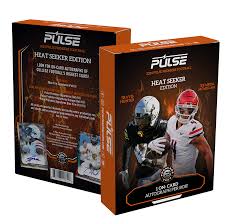
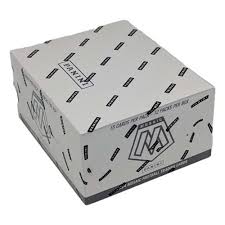
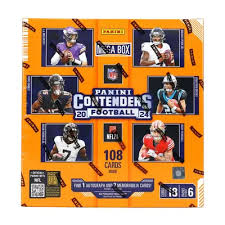
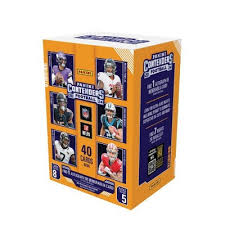
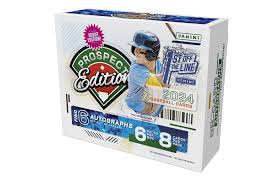
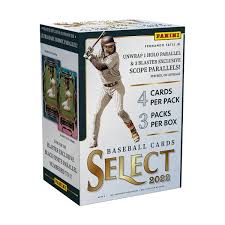
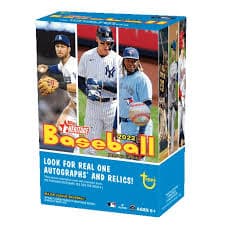
2022 Topps Heritage Baseball Blaster Box Configuration: 7 Packs per Box – 9 Cards per Box. Plus 1 extra pack.
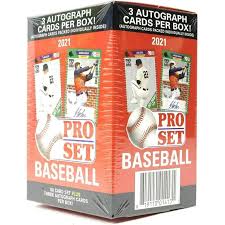
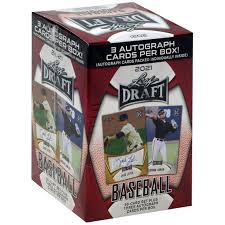
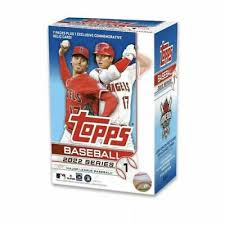


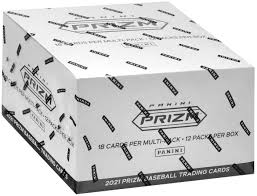

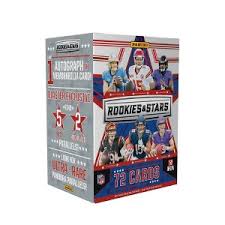

Keep up on breaking Sports Card News, our latest articles, product specials and exclusive content with expert analysis of hobby trends.

© Copyright 2025 - All rights reserved Cardlines.com / Media Techs LLC - Sports Card News, Reviews, Releases and BREAKS - #thehobby.
Important: When you click on links to various merchants on this site and make a purchase, this can result in this site earning a commission. Affiliate programs and affiliations include, but are not limited to, the eBay Partner Network.
Sports Card Scavenger Hunt! (5,000 Subscriber Special!)
Cardlines 14 hours ago